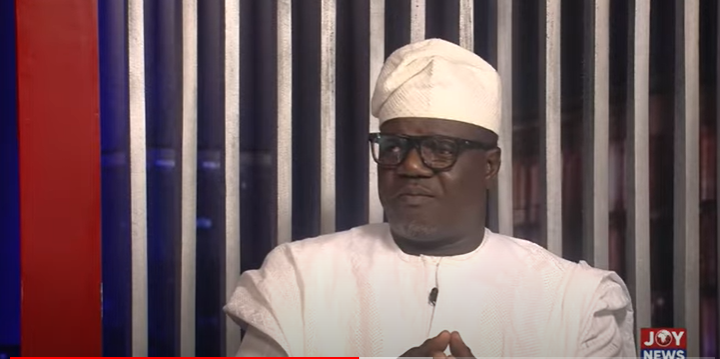The Member of Parliament for South Dayi, Rockson-Nelson Dafeamekpor, says the Secretary to the President, Nana Bediatuo Asante, cannot treat parliament as an extension of the Executive arm of government.
According to him, Parliament and the Executive are equal branches of government and that parliament is not subordinate to the executive.
Speaking on JoyNews, Mr Dafeamekpor said that a press release from the office of the President, which asked Parliament not to transmit the anti-LGBTQ+ bill to the President until a matter before the Supreme Court was resolved, was disrespectful.
“So, when you are conducting yourself in relation to another organ of state, you must conduct yourself within the protocols and the ethics of those offices. You do not communicate with parliament as though we are subsidiary to the Executive. The Clerk to Parliament is akin to the Chief of Staff of the Presidency; he is akin to the Judicial Secretary who occupies an office and operates under the office, operates and serves the Judicial Counsel, and serves the Chief Justice,” he said on the AM Show on March 20, 2024.
According to Mr. Dafeamekpor, the Secretary to the President, Bediatuo Asante, was speaking to his superiors when he wrote the press release, and his language and tone should have been more respectful.
He said that Bediatuo was still secretary to the President when the minority in Parliament challenged the constitutionality of the e-levy law and that the office of the presidency used the "presumption of the function of the President" argument in that case.
Mr. Dafeamekpor said the same "presumption of the function of the President" applies to the current LGBTQ case.
“If you look at the stipulation in Article 1068 of the Constitution in respect of this matter, there are clear timelines to be followed when this happens. When the bill goes through the mill and is passed into law and remitted to the office of the president, the president cannot say that he would not receive the bill.
“He must receive the bill and take steps. What steps are available to him? Within seven days, you must inform parliament that instead of giving parliament an immediate accent to the bill, 'I have referred it to the Council of the State for advice, and in that referral to the Council of the State, the president is to indicate to the Council of the State the portion of the law or part of the law that he thinks they must pay attention to and advise him.
“He has to give that indication; if he is not making a referral to the Council of the State and wants to veto it properly, he must, within 14 days of exercising that veto, inform parliament regarding a portion of the bill proposing amendments to them and justifying the amendment."
Latest Stories
-
I’ve no plans to leave comedy for movie production, says Basketmouth
30 mins -
Akufo-Addo seeks to use Bawumia to complete Akyem Agenda– Asiedu Nketiah
37 mins -
‘Bawku conflict politicised for electoral gains’ -Martin Amidu alleges
39 mins -
‘Let industry players play the game ‘ – AOMC boss slams political interference in oil sector
1 hour -
Let’s learn from ExxonMobil, high flyers must lead the way for mergers – AOMC Boss
1 hour -
‘So many regulations, yet corruption prevails’ – Dr Riverson Oppong on OMC oversaturation
2 hours -
At least 24 dead after two boats capsize off coast of Madagascar
3 hours -
Madina MP lauds White Chapel Youth Group for championing peace ahead of elections
3 hours -
Man United settle for draw at Ipswich Town in Amorim’s first game in charge
3 hours -
GPL 2024/2025: Prince Owusu screamer earns Medeama win over Young Apsotles
3 hours -
BBC visits mpox clinic as WHO says DR Congo cases ‘plateauing’
4 hours -
Burning old TVs to survive in Ghana: The toxic trade in e-waste
4 hours -
Perfume boss admitted he ignored Russia sanctions
4 hours -
Wicked proves popular as opening set to be biggest for Broadway film
4 hours -
Nominee for agriculture secretary completes Trump cabinet
4 hours

